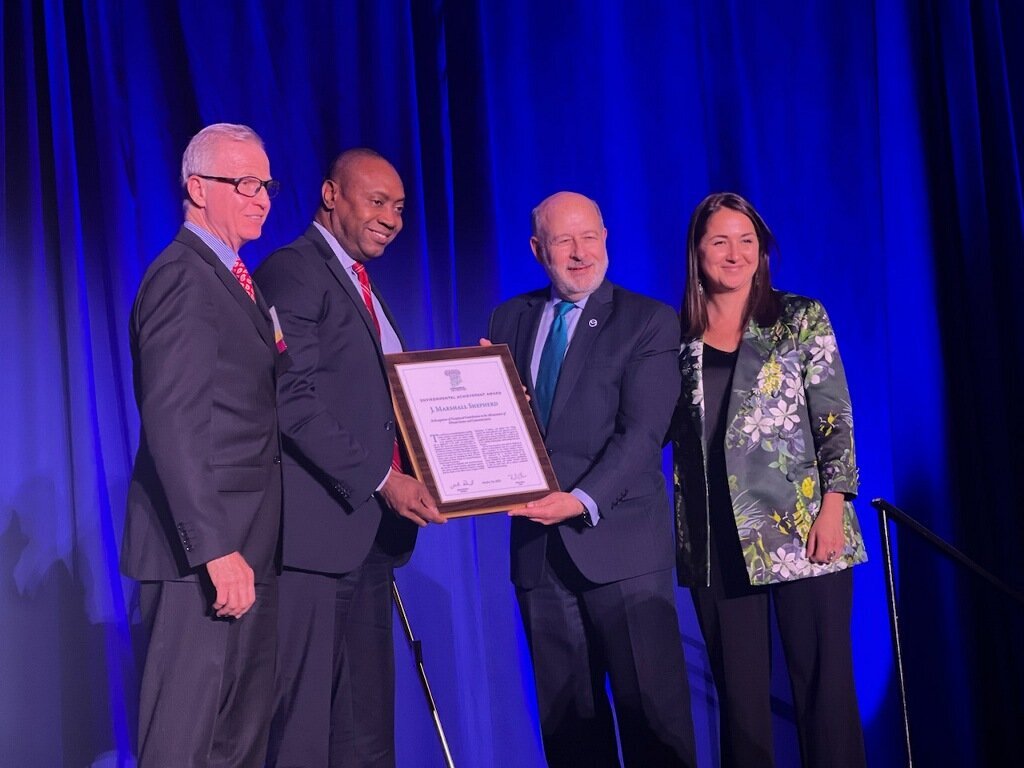Marshall Shepherd, Georgia Athletic Association Distinguished Professor of geography and atmospheric sciences at the University of Georgia, was recognized as the recipient of the 2023 Environmental Achievement Award.
The award, which is presented by the Environmental Law Institute, recognized Shepherd’s exceptional contributions to environmental, protection, conservation and sustainability. He accepted the award at the ELI Annual Award Dinner in Washington, D.C., on Oct. 24.
Research conducted by Shepherd and his colleagues has catalyzed entirely new areas of study, such as how wet soils can sustain the intensity of tropical storms and hurricanes and how urban areas can affect rainfall patterns. His research has been supported with $30 million in funding from agencies such as NASA, the National Science Foundation and the U.S. Department of Energy. He has authored or co-authored seven books and more than 100 peer-reviewed scholarly publications.
He was recently named associate dean for research, scholarship and partnership in the Franklin College of Arts and Sciences. In that role, which he will assume Nov. 1, Shepherd will collaborate to advance a number of the college’s objectives, including identifying and supporting funding opportunities, facilitating team initiatives across the college, developing a grant proposal program and enhancing recognition for faculty research.
Shepherd also holds a joint appointment in College of Engineering and is the associate director for climate and outreach in the university’s Institute for Resilient Infrastructure Systems. Last year, he was recognized with election to the National Academy of Engineering, election to the National Academy of Sciences and election to the American Academy of Arts and Sciences—the only person in UGA history to be elected to all three prestigious associations. He was named the 2022 SEC Professor of the Year.
“Dr. Shepherd’s outstanding career and commitment to understanding and communicating about climate science and its implications for global environments and communities is truly remarkable,” said Environmental Law Institute (ELI) President Jordan Diamond. “With a long-standing record of exceptional scientific research, thought leadership, and public education on atmospheric sciences, he has been instrumental in bridging the gap between scientific discovery and public discourse.”


